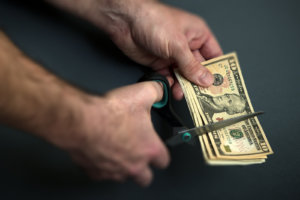
There is a simple formula for getting ahead financially – spend little and save a lot. It is important to widen the gap between what you are making in income and what you are spending for expenses as much as possible so you will be able to fund your future needs with the money you have earned today. In addition to an emergency fund and a retirement fund, you will also want to build your savings for other desires like buying a home or taking a vacation without having to use credit cards to pay for anything. Here are some simple steps that will help you slash your spending so you can save more for the future.
Identify Areas Of Overspending
The first step is identifying areas of overspending in your life. Even if you are using a budget, there may be spending areas where you are spending more than you should due to habit or convenience. For example, if you spend a significant amount of money going out with friends each week, you could save a considerable amount of cash by making changes to your routine like ordering draft beers instead of mixed drinks or meeting up at someone’s home to watch movies instead of going to a movie theater. Online money management programs like www.Mint.com can track your spending for you by categorizing the transactions of your bank and credit card accounts automatically and providing you with a totals spent for each category.
Focus On Reducing Your Monthly Expenses
Reductions in your monthly expenses are highly desirable because each $1 in immediate savings is multiplied by twelve over the course of a year. Lowering your cable bill by $15 per month saves you $180 annually. Once these reductions are in place, there is typically no effort needed to maintain them, as the companies will just send you a reduced bill each month. Use the internet to compare the products and rates of different cable companies, insurance companies, utility providers and others to get the best prices available in your area.
Change Your Habits To Reduce Your Discretionary Spending
Reducing your day to day discretionary spending requires much more discipline as you will have to resist daily temptation to revert to your old habits. For many people, the best course of action is to focus on changing one habit at a time and continuing to maintain that habit until it feels normal. For some, this may mean making a pot of coffee first thing in the morning instead of stopping for a latte on the way to work. For others, it means cooking meals at home as much as possible. Curb impulse spending as much as possible and maintain your new habits to save a significant amount of money over the course of a year.
